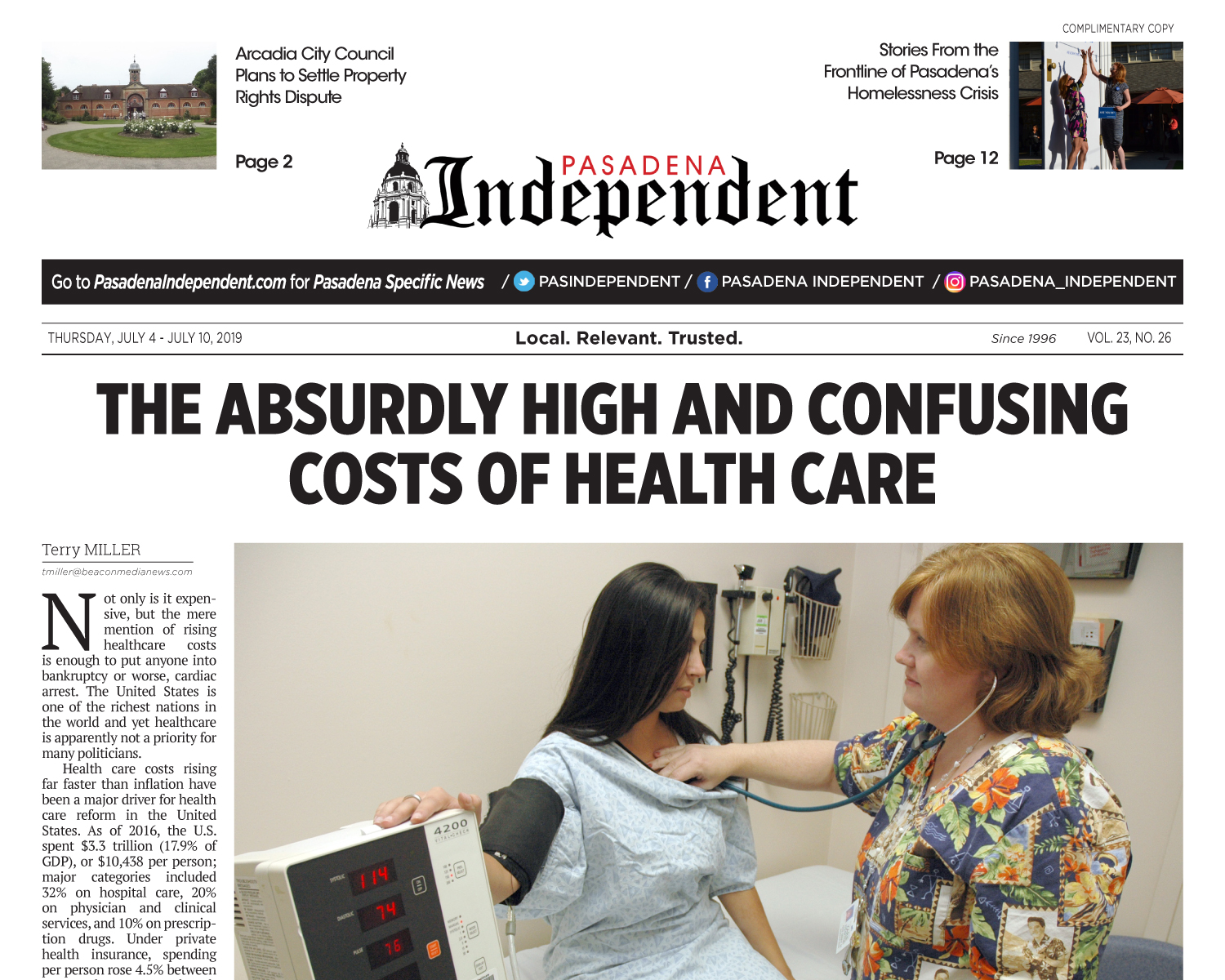By William R. Manis, President, and CEO, San Gabriel Valley Economic Partnership
Rising health care costs are a critical issue for all Californians. The cost of health care already consumes a significant portion of the state budget and is often a pricey budget item for cities, counties, school districts, and many other government agencies as well as for businesses, families, and individuals. To make health care more affordable for public agencies and private businesses, policymakers should be extremely hesitant to add any new cost or expensive regulatory hurdle on health care plans, as these costs are inevitably passed on to consumers, who end up paying more and more for health care.
This is the problem with Assembly Bill 731 by Assemblymember Ash Kalra, a bill which raises health care costs across the state.
Businesses across California offer health care benefits to their employees. Each business, whether large or small, works hard to determine the best health benefits they can offer to their employees. Large companies with hundreds or thousands of employees can often negotiate a highly competitive, uniquely tailored employee health care plan. Health care plans are a cornerstone of retaining talented, skilled employees at major companies for the long term.
Large group health plans are negotiated between the company and a health plan provider, with benefits and pricing balanced to create a health care package that best serves employees. This is a highly competitive market, with strong incentives to keep health benefits affordable in order to retain the large number of employees that these companies provide. This is why the federal government determined that regulatory review of large health plan groups is unnecessary under the Affordable Care Act as this negotiation process usually keeps premium increases low.
Over 17,000 companies underwent this health plan renewal process in 2018, including some of our members here at the San Gabriel Valley Economic Partnership. These carefully negotiated plans, which balance employees’ interests and those of their employer, have been remarkably successful because they efficiently provide affordable, reliable coverage to the individual employee at a reasonable rate for the employer. Should this market balance be tampered with, the businesses that buy large group health plans, and their thousands of employees, will ultimately suffer. Unfortunately, AB 731 jeopardizes this careful, cost-effective system.
We strongly oppose AB 731 as it would require the Department of Managed Health Care (DMHC) and California Department of Insurance (CDI) to review thousands of large group health plans and insurance policy rates. In 2018, the DMHC reports that there were 13,600 large plan health care groups who renewed their plans in California. AB 731 adds another layer of unnecessary bureaucracy, increasing delays and making these health plans more expensive.
AB 731 would create new oversight responsibilities, causing operating costs for the DMHC and CDI to increase dramatically. To enforce the new health plan review rules, more bureaucrats will be necessary, requiring the two agencies to find additional revenues to add more staff and expand their operations. Because the Department of Managed Health Care is entirely funded by fees paid as part of health care plans, these new costs would be passed on to the businesses who purchase large group plans and their employees in the form of higher premiums.
A 2015 law already requires health plans to publicly report large group rate information. Why create another layer of regulatory review – which requires hiring more bureaucrats to evaluate these plans – if only to duplicate what is already publicly available data? The large group market has historically seen significantly lower premium growth than other health plan marketplaces. AB 731 is trying to address a problem that does not exist.
If AB 731 passes, negotiations for health plans will no longer be about what is best for employees but will instead focus on how to satisfy state policymakers who would prefer companies accept a checklist of suggestions and criticism provided by bureaucrats. To truly protect consumers, we must protect their interest in having health care plans that are reasonably priced and provide a reliable, accessible set of quality health benefits and services.
AB 71 does not make health care more affordable – it only makes the regulatory process more time consuming and expansive, adding yet another layer of bureaucracy, with more costs to be paid by consumers. Businesses and their employees here in San Gabriel Valley and across California need sensible health care policies that keep costs down. This is why we strongly oppose AB 731 and encourage our state lawmakers to vote “NO” when this legislation comes before them.







